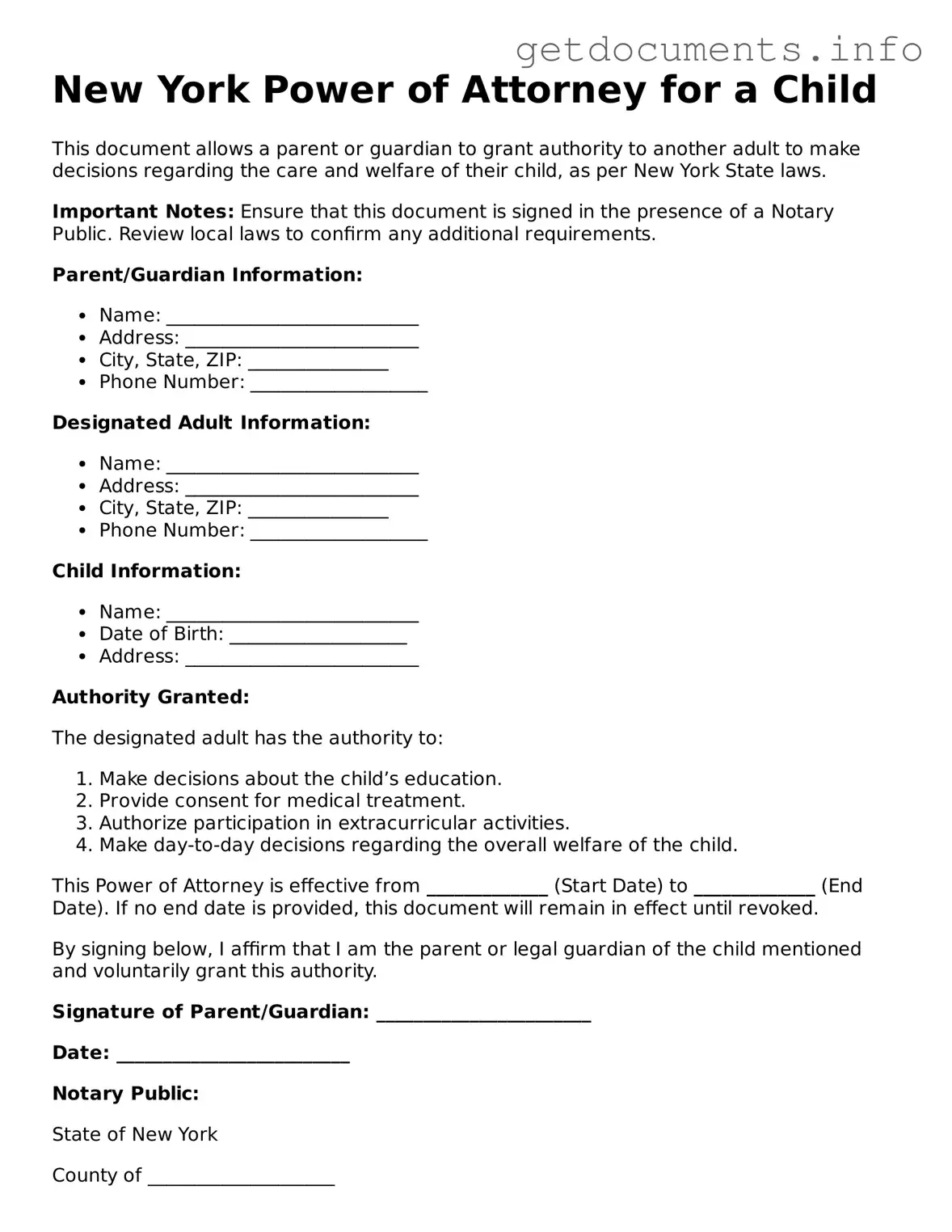Free Power of Attorney for a Child Template for New York
The New York Power of Attorney for a Child form is a legal document that allows a parent or guardian to designate another adult to make decisions on behalf of their child. This form is essential for ensuring that your child's needs are met in your absence, whether for medical care, education, or other important matters. To take the next step in safeguarding your child's well-being, fill out the form by clicking the button below.
Access Power of Attorney for a Child Editor

Free Power of Attorney for a Child Template for New York
Access Power of Attorney for a Child Editor
Got places to be? Complete the form fast
Fill out Power of Attorney for a Child online and avoid printing or scanning.
Access Power of Attorney for a Child Editor
or
⇩ PDF File
